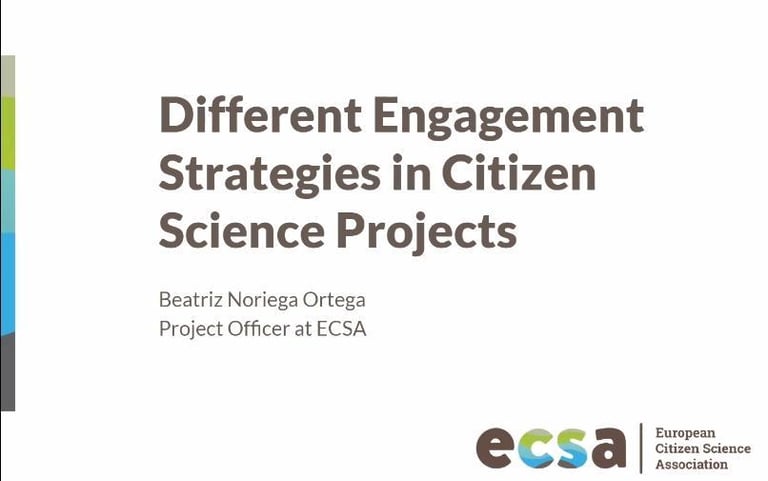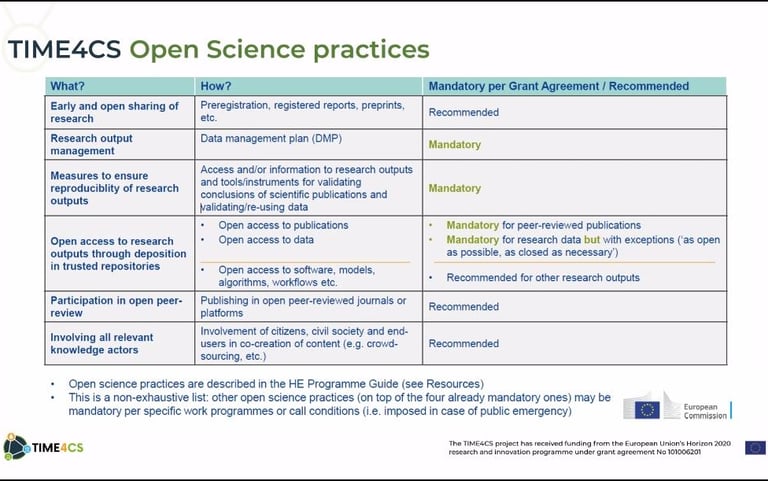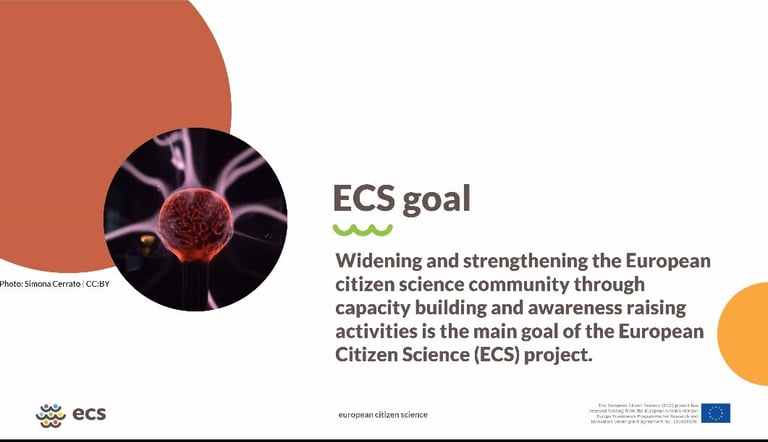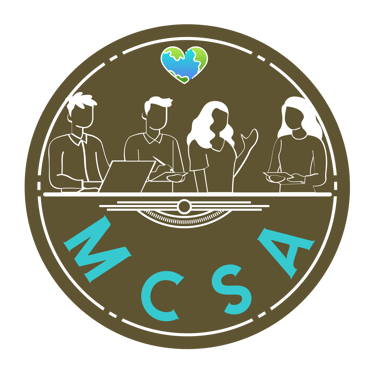
Citizen science adds value to projects under evaluation for funding
Citizen science as a methodology for projects adds value to projects to be submitted to Horizon Europe as this will be make a difference when these are up for evaluation. This was the message from Claudia Iasillo of Agenzia perla Promozione della Ricerca Europea (APRE), and project manager of the ECS project at the webinar, “Opening research to society in Horizon Europe: How to set up citizen science projects?” held last June 8.


The objective of the webinar was to discuss the integration of citizen science projects within the Horizon Europe framework and explore effective strategies for setting up such projects. The meeting aimed to leverage the expertise of the participants to identify key considerations, challenges, and best practices for successful implementation of citizen science initiatives in research.
The webinar began at 14:00 CET+1 with an introduction to the importance of citizen science in promoting public engagement, enhancing scientific research, and fostering innovation.
In her presentation, Iasillo said that while they be different typologies to the concept of open science, what is important are the key principles around it which are scientific knowledge, concept of open access, open science infrastructure and communication and open engagement of societal actors.
She also explained the evolution of the concept of open science in the policy framework of the European Union Commission which moved away from the open access to a broader perspective including citizen science and societal engagement. These can be shown also in the evolution of open science practice as shown in this chart. (Insert TIME4CS Open Science practices chart)
This can be gleaned, she said on the incorporation of citizen science in the Horizon Europe program as it was made an integral part of the proposal especially in the methodology – specifically the use of open science practice in the methodologies of projects.
In fact, she added that in the proposal template for HE program, the three evaluation criteria: excellence, impact and implementation, there are expectations to use open science. For example, in the excellence part, evaluation includes the quality of open science practices (how open science practice is integrated). In the implementation part, the evaluation of the quality and efficiency of implementation will be evaluated according to the capacity of participants and of the expertise of the consortium in open science practices.


For her part, marine scientist and ECSA project officer for COMPAIR and SOCIO-BEE, Beatriz Noriega Ortega, on her presentation on “Different Engagement Strategies in CS projects” advised the participants, “if creating projects, use the platform and be innovative when writing your proposals.”
She was referring to the implementation of her two air quality monitoring projects, SOCIO-BEE and COMPAIR that had a lot of similarity in terms of topic, overarching goals, high technology component, focus on inclusion but still got funding from Horizon 2020.
She said that these projects are still ongoing and are being implemented simultaneously using citizen science approaches.
The SOCIO-BEE project is a collaboration between 18 partners in 7 European countries that uses the beehive ecosystem as a model for public engagement where roles and level of engagements can be divided into queen bee, working bee, drone bee, bear and hive. The levels of engagement can be dependent on time, interest, knowledge or skills. It has started artificial hives in several pilot areas in Zaragoza, Spain; Ancona, Italy and Marousi in Greece and it is hoped that they will eventually create their own beehive.
Citizen science as a methodology for projects adds value to projects to be submitted to Horizon Europe as this will be make a difference when these are up for evaluation.
This was the message from Claudia Iasillo of Agenzia perla Promozione della Ricerca Europea (APRE), and project manager of the ECS project at the webinar, “Opening research to society in Horizon Europe: How to set up citizen science projects?” held last June 8.
She also added that since citizen science is expected in the proposals to the HE to be an integral part of project methodology, it is important to “be familiar with the different open science practices.”
She presented on Open science and citizen science integration in Horizon Europe grant applications.


In her presentation on ECS project and the EU Citizen Science Platform, political scientist and project manager of the ECS project in European Citizen Science Association (ECSA), Claudia Fabo Cartas, urged the participants in the webinar to use the EU-Citizen.Science online platform to learn CS practices and to access tools, services, and resources for citizen science. She said the the platform provides “bundles of information on citizen science for bringing together the results and outcomes of many citizen science projects.”
She also outlined the goal of the ECS as widening and strengthening the European citizen science community through capacity building and awareness raising activities. She also bared the 5C mission of the ECS that includes: 1)changing today’s societal challenges into future opportunities through citizen; 2) capability building and training services; 3) creating and sharing of citizen science data and knowledge; 4) contributing to European policy making and lastly, 5) common platform uniting diverse European actors.
To accomplish its missions, ECS is undertaking several activities that contribute to expanding the reach of the citizen science by strengthening the community; enhancing digital skills for FAIR and open science communities; further developing the EU-Citizen.Science platform through co-design; developing ECS academy; boosting inclusion and diversity for mainstreaming citizen science; advocating for citizen science and working on policy impact; and investigating the impact of citizen science on research , society and economy.
Cartas also divided the ECS approaches into infrastructure, capacity building, co-design and collaboration, and inclusion and community building.
COMPAIR, on the other hand, is a partnership of NGOs, research institutions, universities and small enterprises. It operates reference stations that measure air quality in 4 European cities: Berlin in Germany, Athens in Greece, Flanders in Holland and Sofia and Plovdiv in Bulgaria. It also developed two technologies: the Policy Monitoring Dashboard and the Dynamic Exposure Visualization Map on monitoring air pollution in these cities.
She said that while COMPAIR and SOCIO-BEE are similar there are also key differences in the project in that the engagement strategy in the former happened from the beginning of the project while actual engagement happened at the latter in the implementation. Also, while SOCIO-BEE is focused on behavioral change, COMPAIR is focused on digital twins and policy creation. Also while both study air pollution, COMPAIR also measures traffic.
In conclusion, Ortega said that even though “the projects are similar, they are not competitive as they are both working towards the same objective.”
The webinar also delved into funding opportunities and support mechanisms available for citizen science projects within Horizon Europe. Insights were shared on how to access funding, navigate the application process, and build collaborative networks for project success.

